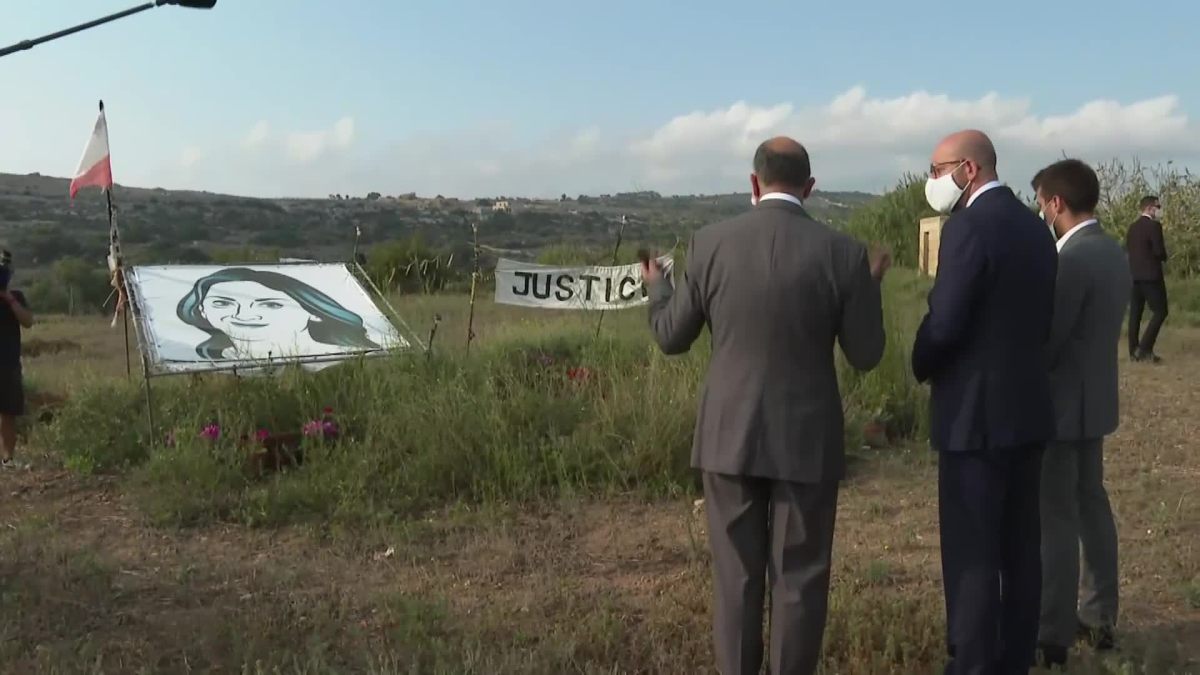Migration and Caruana Galizia on top of Michel’s visit to Malta


Concerns on migration in the Mediterranean were on top of the agenda during a brief state visit to Malta by European Council President Charles Michel.
Michel, a former Belgian Prime Minister paid also his respect to Maltese journalist Daphne Caruana Galizia at the site of her assassination in Ba?rija. While addressing the journalists, Michel declared “what happened here is shameful for Europe and an attack on the free press. My presence here is to pay my respects to Daphnès memory and her family who gave her life for freedom of speech, seeking the truth.” He was accompanied by Caruana Galiziàs husband, Peter and one of her sons, Matthew. After visiting the site, he had a private meeting with Caruana Galiziàs family.
On his arrival to Malta, Michel paid a visit to the Armed Forces of Malta, followed by a meeting with Maltese Prime Minister Robert Abela in Valletta. Migration was top of the agenda. A particular reference was made to the European Union’s new pact on migration and asylum due to be unveiled next week. The upcoming pact has been kept under tight wraps, though Commission Vice-President Margaritis Schinas emphasised on agreements with countries of origin and transit, stronger border controls and what Schinas described as a system of “permanent, effective solidarity.”
During the meeting, Maltese Prime Minister Robert Abela argued that allocating EU funds to Malta was no solution, insisting that there should be burden sharing. He insisted that there should be a permanent mechanism through which asylum seekers could be relocated from member states on the EU’s frontiers. “The reality we face is that every day, the AFM commander informs us on a number of boats leaving Libya, each with 90, 100 or 120 people”, he said.
He lamented that in the absence of proper mechanisms, each case was dealt with ad hoc, as he defended the government’s controversial decision to prevent the Maersk ship ‘Etiennè from disembarking in Malta for 38 days after it rescued a group of 27 migrants. He insisted that the impasse would have been solved had every member state accepted to take in a single person.
However, Czech Republic, Hungary, Poland and Slovakia have long opposed any mandatory relocation of asylum seekers.
(ITALPRESS/MNA).
Source: medNews

